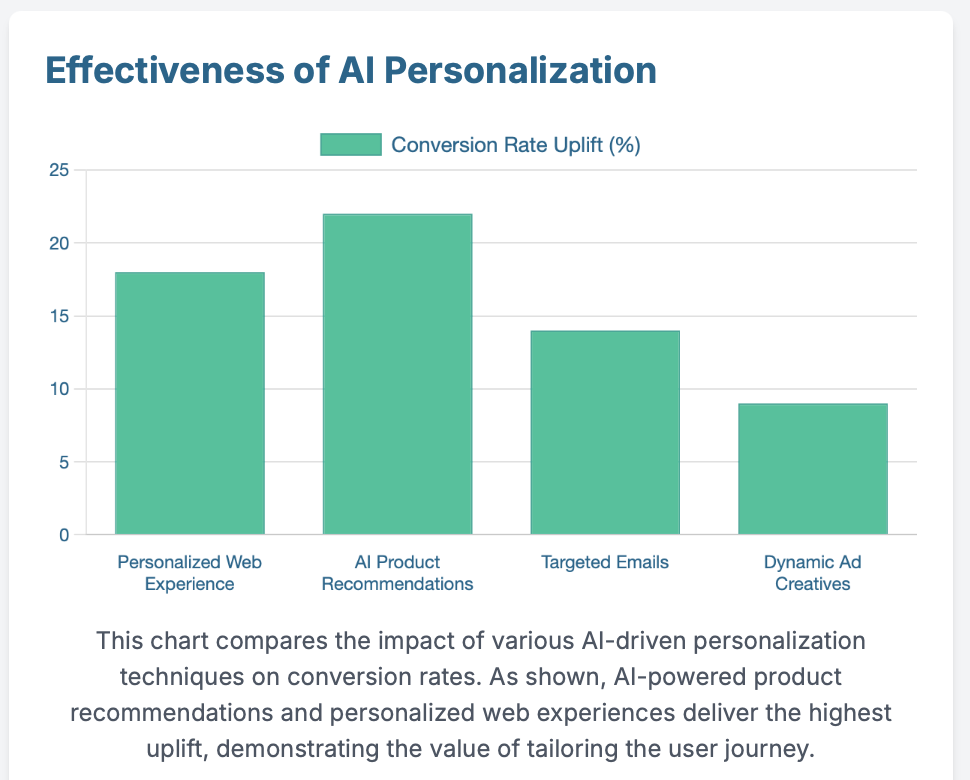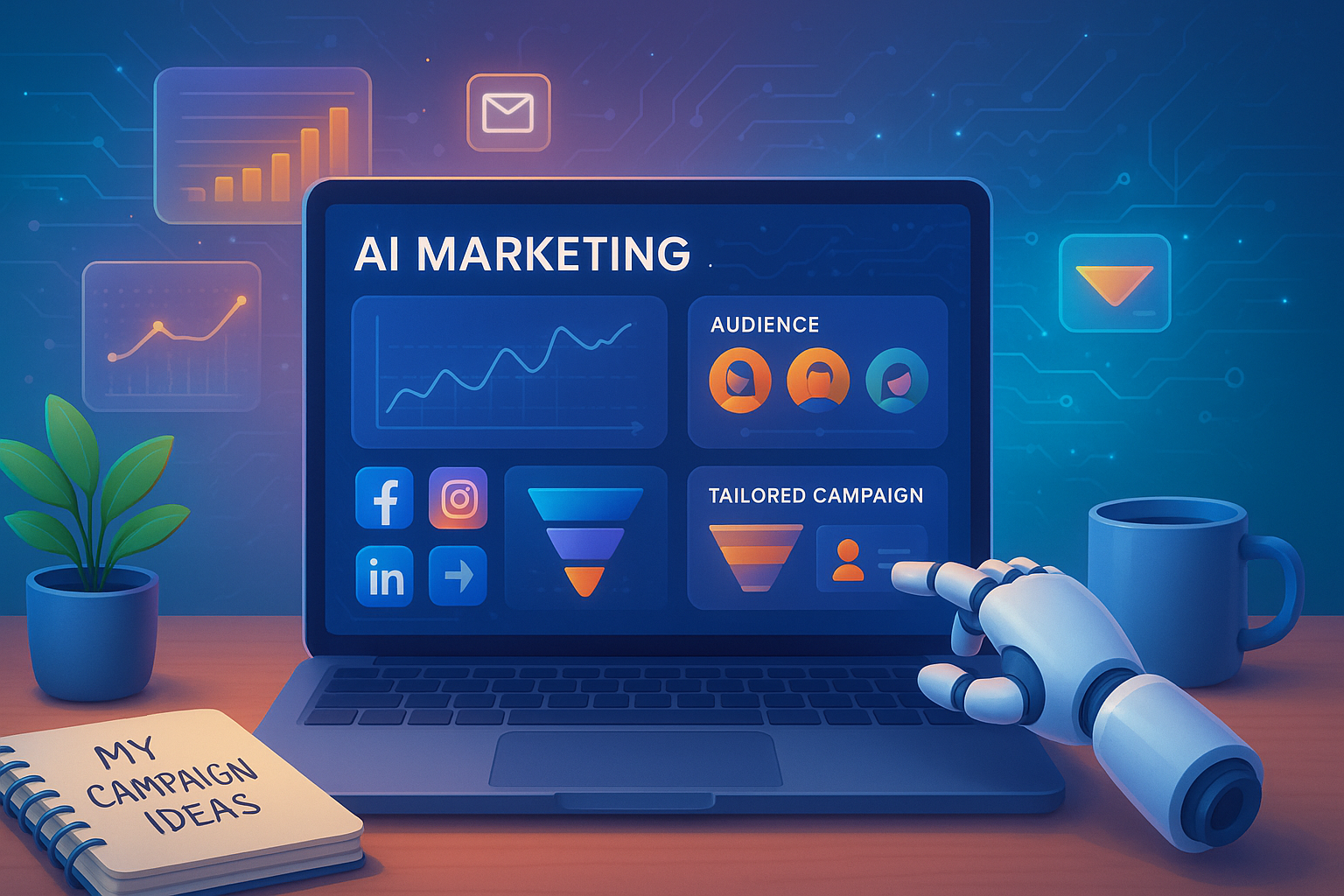Exploring AI Tools for Creating Tailored Marketing Campaigns: A Comprehensive Guide for DIY Marketers
AI-Powered Audience Segmentation
In this guide, we will discuss various AI Tools that can enhance marketing strategies through improved audience segmentation.
Understanding Audience Segmentation
Audience segmentation is the process of dividing a target market into distinct subgroups based on shared characteristics. This can include demographics, behaviors, purchasing habits, and more. The purpose of segmentation is to enable marketers to tailor their messaging and offers to meet the specific needs of each group, ultimately enhancing engagement and conversion rates. Traditional methods of segmentation often rely on broad categories, making it challenging to deliver truly personalized experiences.
AI-powered audience segmentation significantly improves this process by analyzing vast amounts of data quickly and accurately. Using machine learning algorithms, AI can identify patterns and insights that human analysts might overlook. This results in more nuanced segments that can be targeted with tailored messaging, leading to higher engagement and better conversion rates.
Benefits of AI in Audience Segmentation
The benefits of using AI for audience segmentation are manifold. Firstly, AI tools can process large volumes of data from various sources, such as social media, website analytics, and customer relationship management (CRM) systems. This capability allows for more informed decision-making based on real-time data rather than relying on outdated or incomplete information.
Secondly, AI can continuously update and refine audience segments based on new data and changing behaviors, ensuring that marketing strategies remain relevant. This adaptability is crucial in today’s fast-paced digital environment, where consumer preferences can shift rapidly. Ultimately, AI-driven segmentation helps marketers create more targeted campaigns, leading to improved customer satisfaction and loyalty.
Popular AI Tools for Segmentation
- Google Analytics: While primarily known for web analytics, Google Analytics offers advanced features for audience segmentation, allowing marketers to create custom segments based on user behavior and demographics.
- Segment: This customer data platform makes it easy to collect, unify, and segment data across various marketing channels, providing a comprehensive view of customer interactions.
- HubSpot: HubSpot’s marketing platform includes built-in AI tools for audience segmentation, enabling users to create targeted lists based on predefined criteria.
- BlueConic: This customer data platform utilizes AI to analyze user behavior and create dynamic segments that update automatically as new data comes in.
Personalized Content Generation
The Importance of Personalization in Marketing

Personalization has become a crucial component of effective marketing strategies. Modern consumers expect brands to understand their preferences and deliver content that resonates with their interests. Research shows that personalized marketing can lead to significantly increased engagement, higher conversion rates, and improved customer retention. For DIY marketers, creating personalized content can seem daunting due to resource constraints; however, AI tools are rapidly changing this landscape.
AI-driven personalization allows marketers to craft content tailored to individual users at scale. By analyzing user data, behaviors, and preferences, AI can identify what type of content appeals to different segments of an audience. This means that marketers can deliver targeted emails, product recommendations, and even personalized web experiences without needing extensive resources or manpower.
AI Techniques for Content Personalization
Several AI techniques are particularly effective for content personalization. Natural language processing (NLP) enables AI to analyze text and understand context, which is invaluable when generating personalized messages. Machine learning algorithms can predict user preferences based on past behavior, allowing marketers to serve relevant content proactively.
Additionally, recommendation systems powered by collaborative filtering and content-based filtering can suggest products or services based on users’ interactions and similarities with other customers. This not only enhances user experience but also drives higher sales conversion rates as customers are presented with options that match their interests.

Top AI Tools for Content Generation
- Copy.ai: This AI writing assistant helps marketers generate engaging content for blogs, social media posts, and marketing copy, using user-defined parameters to ensure relevance.
- Persado: Persado utilizes AI to create emotionally-driven marketing language that resonates with different audience segments, optimizing messaging for maximum impact.
- Jasper: Formerly known as Jarvis, this AI content generation tool helps marketers create a wide range of content, from blog posts to ad copy, with a focus on personalization.
- ChatGPT: As a language model, ChatGPT provides interactive content generation capabilities, allowing marketers to create personalized chat experiences for customer engagement.
Automated Campaign Performance Analysis
Why Campaign Performance Analysis Matters
Analyzing campaign performance is essential for understanding the effectiveness of marketing strategies. It enables marketers to evaluate what works, what doesn’t, and where improvements can be made. Traditional analysis methods often involve manual data collection and reporting, which can be time-consuming and prone to human error. However, AI tools can automate this process, providing real-time insights and more accurate data.
By automating performance analysis, marketers can focus on strategic decision-making rather than getting bogged down in data. This not only increases efficiency but also enhances the ability to pivot quickly based on performance metrics. Marketers can identify trends, track key performance indicators (KPIs), and optimize campaigns on the fly, resulting in better ROI overall.
Leveraging AI for Real-Time Analytics
AI excels in processing large datasets quickly and generating actionable insights in real time. Through machine learning algorithms, AI can analyze data from multiple sources such as social media, email campaigns, and website traffic, providing marketers with a comprehensive view of campaign performance.
Real-time analytics empower marketers to make informed decisions based on current data rather than relying on historical trends alone. This proactive approach enables rapid adjustments to campaigns, ensuring they remain relevant and effective in achieving desired outcomes.
Best AI Tools for Campaign Analysis
- Google Analytics 4: The latest iteration of Google Analytics offers advanced features for tracking user interactions, enabling marketers to analyze campaign performance comprehensively.
- HubSpot Analytics: HubSpot provides an integrated analytics platform that tracks marketing performance across channels, allowing for seamless reporting and insights.
- Tableau: This powerful data visualization tool helps marketers visualize campaign data and performance metrics, making it easier to identify trends and insights.
- Mixpanel: Mixpanel focuses on product and user analytics, giving marketers deep insights into user engagement and behavior during campaigns.
Conclusion
The integration of AI tools into marketing strategies offers significant advantages for DIY marketers looking to enhance their campaigns. By employing AI-powered audience segmentation, marketers can create more targeted and personalized experiences that resonate with their audiences. The ability to generate personalized content at scale saves time and resources while boosting engagement. Additionally, automated campaign performance analysis enables marketers to make data-driven decisions and optimize their campaigns in real-time.
As the marketing landscape continues to evolve, embracing AI tools will be critical for any DIY marketer looking to stay competitive. By adopting these technologies, businesses can not only improve their marketing outcomes but also create lasting relationships with their customers through more relevant and engaging communications.
FAQs
What is AI-powered audience segmentation?
AI-powered audience segmentation uses machine learning algorithms to analyze data and identify distinct customer groups based on shared characteristics, enabling more targeted marketing strategies.
How can AI improve content personalization?
AI enhances content personalization by analyzing user behavior and preferences, allowing marketers to deliver tailored messages and recommendations that resonate with individual users.
What tools can I use for automated campaign analysis?
Popular tools for automated campaign analysis include Google Analytics 4, HubSpot Analytics, Tableau, and Mixpanel, which provide real-time insights into marketing performance.
Is personalization necessary for successful marketing campaigns?
Yes, personalization is crucial as modern consumers expect brands to understand their preferences, and personalized marketing has been shown to improve engagement and conversion rates.
Can small businesses afford AI tools for marketing?
Many AI tools for marketing are scalable and offer various pricing options, making them accessible for small businesses looking to enhance their marketing efforts without large budgets.








